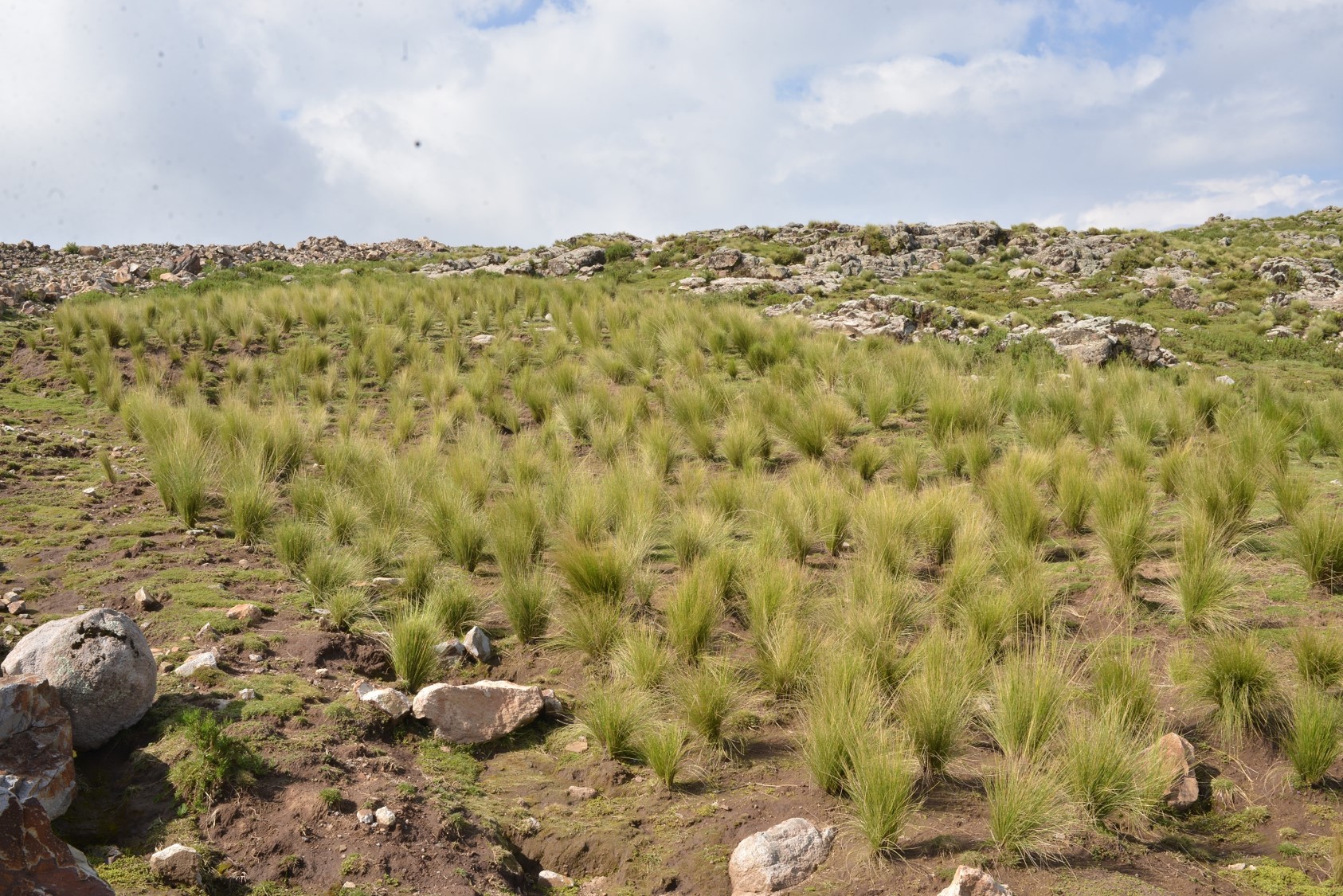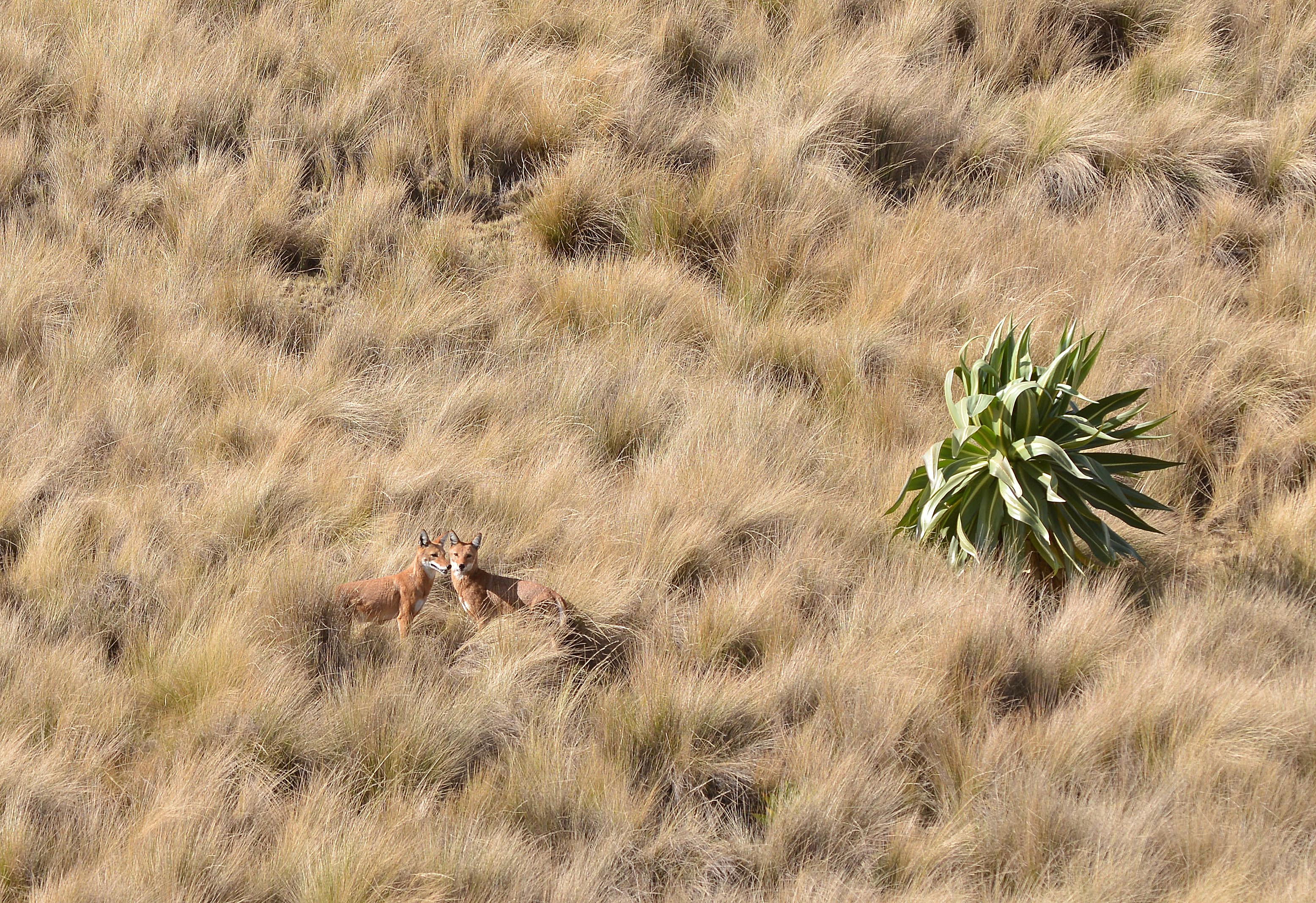

The Ethiopian wolf is a charismatic endemic species, only found high in the mountains of Ethiopia above 3000m. These highlands are known as the “Water Towers of Africa” and for good reason; the sources of many rivers can be found here, supplying water to both the swathes of native grassland, swamps and peatbogs that form the Afroalpine ecosystem and the ever-expanding landscape of crops and grazing livestock in the lowlands below.
The Afroalpine ecosystem is rich in unique plants and animals but extremely vulnerable to climate change. An increasing human population means agriculture has had to expand up the mountains, simply so the people in these remote areas have enough to eat; the unfortunate side effect is that native vegetation has been lost, resulting in widespread soil erosion which, critically, reduces the mountains’ ability to regulate water.
When the seasonal rainfalls fail or are late, food shortages are a very real threat, especially for the poorest communities who, with limited access to other resources, are heavily dependent on the natural environment for their survival. But the pressures of climate change could make the situation much worse – effects like increasing temperatures and decreasing rainfall may jeopardise food and water security even further, across the Afroalpine ecosystem and beyond. Without this habitat the Ethiopian wolf cannot survive, and nor can the communities that share their mountain world.
We believe in a future where wolves and people coexist.

Through our Biodiversity Friendly Futures project we are providing communities with opportunities to engage in alternative livelihoods that have a much lower impact on the environment and help increase people’s resilience to the effects of climate change. We have successfully trialled bee-keeping, producing fuel-saving stoves, and growing guassa grass as new sources of income that also support the Afroalpine ecosystem. Guassa and Erica trees (giant heather, needed for honey production) in particular are native plants that provide excellent habitat for wolves, as well as being a profitable, sustainable resource. With these initiatives, people are less reliant on unsustainable practices and are motivated to protect the natural vegetation.
This Earth Day, it is important as ever to value our ecosystems and natural resources and to recognise their importance as we continue to push for global action on climate change. With your support, we can continue to grant more people access to sustainable livelihoods that can help communities and wolves survive together.
